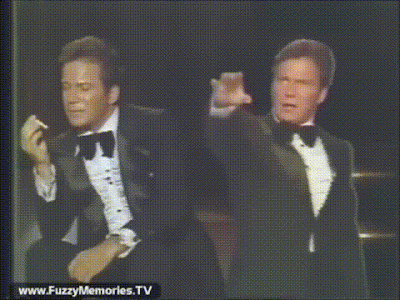I’ve believed this for quite a while now. Let me explain. Until smartphones took over, every time someone in a movie was on the phone and the
other person hung up, the person would rattle the phone-cradle in a way that
would do absolutely nothing except assure that the phone was dead.
This bizarre behaviour
mysteriously migrated to the general population who routinely did the same
thing when they lost a connection. Why? It was in the movies! Everyone
did that! If the phone went dead, then, rattle-rattle-rattle, and it would come
back! Never mind that it never happened that way in human history. People even
did it with that brontosaurus of communication, the pay phone. (As a sideline,
have you thought of this? With the phasing out of phone booths, we lose one
more venue for steamed-up, hasty vertical sex.)
This technique might have
worked during the era of Alexander Graham Bell and the crank-operated phone.
The rattling was meant to connect you to the switchboard operator who sat at a
giant panel with 100 other “girls” pulling out and pushing in little plugs and
saying in a twangy nasal voice, “Num-ber, pleee-aaase.” I don’t know exactly when this was phased
out, but it was likely sometime after World War II.
There’s more. Until very
recently, writers were always portrayed a certain way. They hid out in the
attic with a manual typewriter and banged away, ripping the finished pages out,
crumpling them up violently, and tossing them into the wastebasket in the far
corner of the room. Hitting the basket meant it was a good writing day.
I remember this in Wonder
Boys with Michael Douglas, in which he wrote a thousand-page novel without
carbons (remember carbons? If you’re under 60, you won’t), so that by the end
of the movie the one existing copy blew out to sea.
Update, Hollywood , update. Don’t show people slapping a
hysterical person. Would YOU like to be slapped if you were hysterical? I’d be
tempted to rip the person’s throat out. But hey, if it’s done in the movies, that’s
what we need to do. It must work.
Woody Allen, now. (My
fingers invariably stumble over his name and call him Woody Alien.) We all know
he IS that writer who sits in a little nook in his palatial home banging away
at a manual typewriter (and who must have his ribbons handmade for him in Thailand
Phones are the worst of
it, though that’s not all: Jasmine’s low-rent sister Ginger has a wall phone with a
cord which her badass boy friend predictably rips out of the wall and hurls, presumably
in order to cut her off from all human contact. It’s the equivalent of taking
an axe and cutting the phone line. Grrrrrrrr.
Though Jasmine spends a
lot of time jittering around on her iPhone, she claims to have no technical experience whatsoever and decides to take a “computer course” so she can study
fashion design online. This is one of
the most awkward, embarrassing things I’ve seen in a movie in quite a few years.
The computer course is generic, its purpose unnamed, but it reminds me of the things
senior citizens used to take in the early ‘90s to reduce their terror of
technology.
The people taking this
course aren’t seniors, but appear to be college-age students of a generation that
grew up surrounded by technology, swimming in it like fish in the sea. My own
kids, who are practically middle-aged by now, experienced computers as a fact
of life and naturally became more proficient as the technology blossomed, then
boomed. My son moved into a career as a techie without any sort of awkward
transition and has thrived in it as naturally as a superbly-trained athlete in
competition.
So why all these 25-year-old people taking this baffling “computer course”? Because no one dares
tell Woody Allen that it’s a clanger of monstrous proportions. It really does
get in the way. I’m not a particularly tech-savvy person and for the most part stick
to basics, but I doubt if navigating an online course would tax my abilities
because it’s all pretty simple and straightforward.
Allen missed a chance for
a splendid visual joke: he could have shown a roomful of seniors desperately
trying to get the hang of this, while Jasmine looks around in chagrin. But his
pride probably would not have allowed it.
When I saw these painful anachronistic jolts in a movie that is
otherwise brilliant and extremely well-written, it pulled me so violently out
of time that I sometimes wondered if the movie was supposed to take place in
the early ‘90s. I am actually surprised that Blanchett didn’t try to rattle the
nonexistent cradle on her iPhone or take a Pitman shorthand course at the
local recreation centre.















.jpg)















.jpg)























